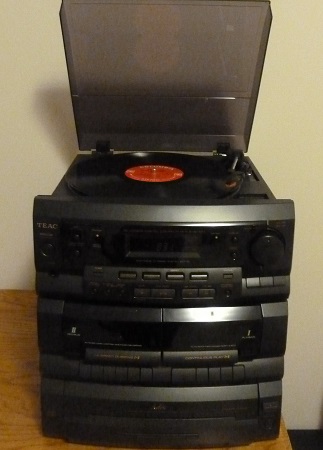Like a Broken Record
 For young people unfamiliar with vintage audio, saying someone sounds like a broken record fails to compute. Many can’t relate to a record player needle landing on a scratched vinyl record—a sound definitely not music to our ears.
For young people unfamiliar with vintage audio, saying someone sounds like a broken record fails to compute. Many can’t relate to a record player needle landing on a scratched vinyl record—a sound definitely not music to our ears.
- The needle gets stuck in a record groove.
- The same line plays over and over again.
- We must manually correct our broken record before the music proceeds.
How like those records we sound when we constantly beg for something. We may rephrase our requests, but the sound comes out the same — nag, nag, nag. I want it. I want it. I want it. Did you hear me? I want it!
We may receive our request, just so we will shut up and go away. Granted, the squeaky wheel gets the oil. Yet we also know that most people try to avoid that squeaky wheel.
Many of us could benefit from a little assertiveness training. We don’t want to sit back, never sharing our needs. At the same time, we don’t want to annoy people until we drive them away.
Speak well. Speak clearly. Know when to stop repeating.
“Much dreaming and many words are meaningless. Therefore fear God” (Ecclesiastes 5:7 NIV).
Thanks to Karen Hart for the suggestion.
Do you have an expression you want explained or a thought about this one? If so, please comment below.
Subscribe to receive my weekly posts by email and receive a free copy of “Words of Hope for Days that Hurt.”
If you enjoyed this post, please share it with your friends.
 Get ready. Beware. Katy bar the door.
Get ready. Beware. Katy bar the door. Sometimes life gets so loud I can’t hear myself think.
Sometimes life gets so loud I can’t hear myself think. Old wagons, carts, and carriages remind us that the squeaky wheel gets the oil (or grease). Their rides equal hours of fun — if the wheels work well.
Old wagons, carts, and carriages remind us that the squeaky wheel gets the oil (or grease). Their rides equal hours of fun — if the wheels work well. On the up and up sometimes refers to people becoming successful.
On the up and up sometimes refers to people becoming successful.  Let it be. Let it lie.
Let it be. Let it lie.  Do you ever meet yourself coming and going? With
Do you ever meet yourself coming and going? With  Last week we explored
Last week we explored  Few of us like to sweat bullets – physical or emotional.
Few of us like to sweat bullets – physical or emotional. I grew up with the knowledge that my parents loved me a bushel and a peck. How did I know that? They told me many times. They also sang “
I grew up with the knowledge that my parents loved me a bushel and a peck. How did I know that? They told me many times. They also sang “